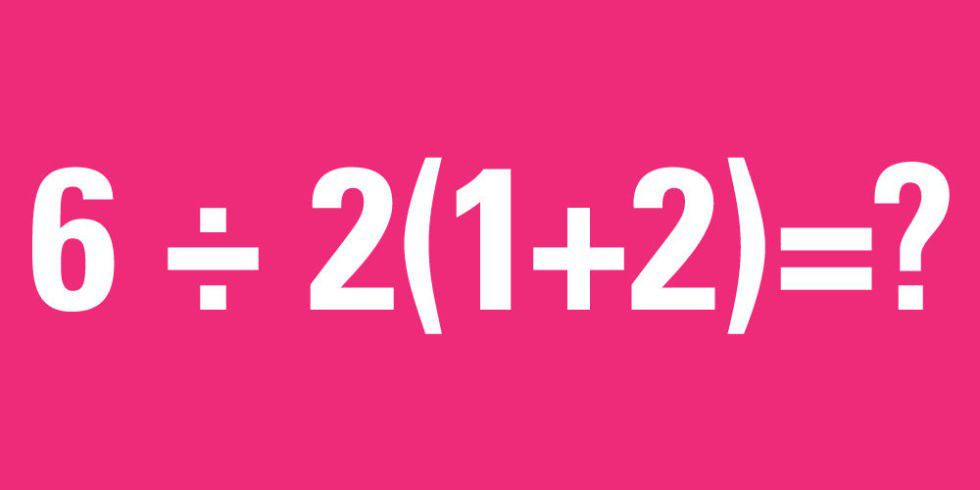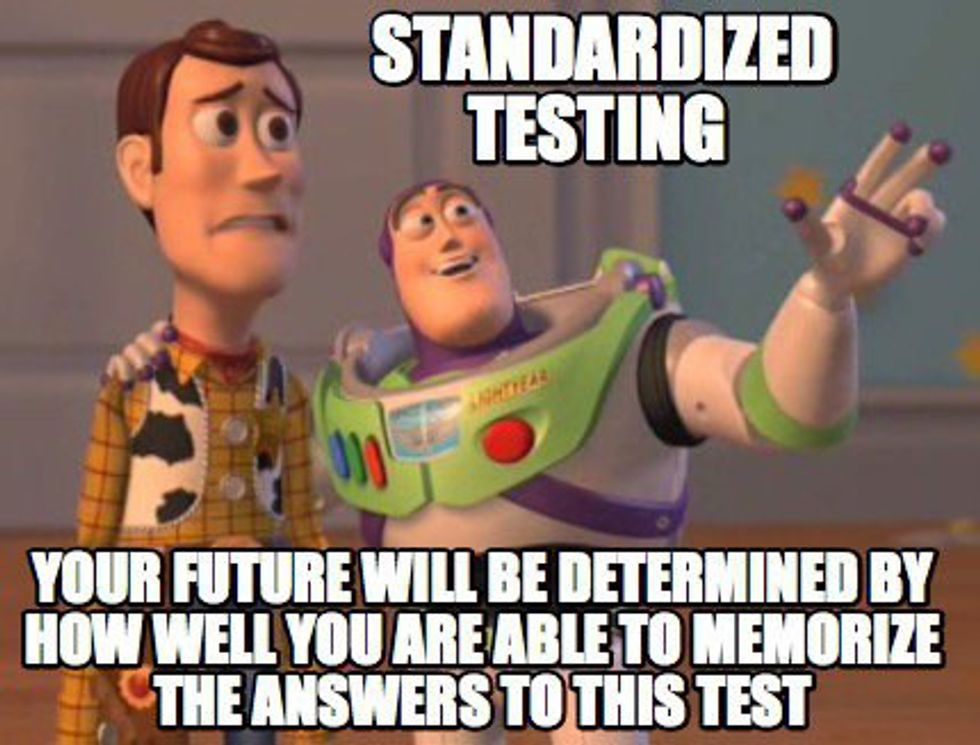While scrolling through Facebook, I noticed one of the thousand similar posts about a math problem that “no one can get right.” Usually, these math problems are simple enough in statue, they are usually solved through proper execution of PEMDAS which is taught very early on in education, I recall first learning it in fifth grade. Yet, even with this basic knowledge, the arguments around the correct answer muddle the comments section.
Most people tend to agree with one or two answers. For the picture below, people would either answer "9" or "1" and then the debate and explanations by both groups on why their answer is correct goes on and on.
This article is not going to be about whether or not some people have better Math skills than others, or that as adults we become stupid. This is going to be about how so many people forget six simple steps that they learned a long time ago.
Our school system is based mostly on the memorization of facts and concepts that we learn for a test. Most people forget this knowledge either after the test, or perhaps they will hold onto it for the most part. I sure do not remember all the concepts and facts I learned in sixth grade science. I remember the major parts, and I am confident that if I were to take a sixth grade science class I would pass it with flying colors through the relearning of it, but if someone asked me right now how high the mesosphere reaches into the sky, hell I don’t know, that is what Google is for.
Now, America does a great job at creating critical thinking. We understand problems, how to determine what needs to be fixed, and then innovate a way to solve that problem. According to separate tests, America generally scores ~20 in the categories of reading, science, and math. However, we always score at the top of critical thinking and problem design implementation.
So, if we as Americans are so great at solving problems and innovating new solutions, why is the education system centered on the memorization of facts so that we may pass tests?
Why don't we utilize our ability to critically think and apply it to all sorts of methods? I firmly believe that everyone should have basic knowledge of the major sciences, and that yes, to be good at addition, you have to do a bunch of addition problems until it becomes second nature. But as a country, we should focus more on the conceptual ideas that are presented.
Once you understand the concept of an idea, then you will be able to implement this in every aspect. This works for all sciences and arts. There is a theory in music, there are mathematical concepts in computer programming, and how the concepts of an idea can be presented through a theory and laws of grammar. (I am sure that I have made several proper grammatical statements in this article alone, but that is why I stick to math.)
To reiterate, I am not saying that the American system is complete trash and there needs to be a complete reworking of how we teach. Yes, we need to do tedious arithmetic and practice writing letters or determining the amount of moles needed for a chemical reaction. I’m just saying that instead of having a sixth grader memorize the dates of random towns being colonized in the early 1700s, have them understand what this caused; why dthese towns being colonized in these areas created the impact it did. Concepts stick around much longer in the brain than a fact that you may have memorized at some point.











 The minimum wage is not a living wage.
StableDiffusion
The minimum wage is not a living wage.
StableDiffusion
 influential nations
StableDiffusion
influential nations
StableDiffusion












